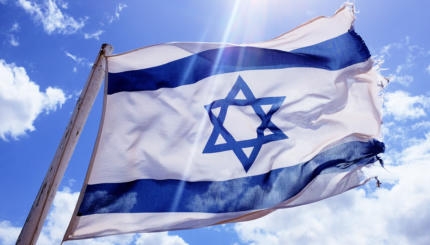When I was a kid, I would always leave the service on Yom Kippur day when it came time for Yizkor, the special memorial service to remember all those loved ones lost to congregation members. I would leave because I had not lost someone in the primary circle of mourning for whom tradition dictates one recites Yizkor — parent, child, sibling, spouse — and so partly out of respect and partly out of superstition, I would leave the sanctuary.
Today, I am blessed that I still do not have anyone for whom to say Yizkor, but I stay as the rabbi to facilitate it for the congregation. There are, of course, those who don’t stay, and I understand and respect that decision.
Recently too in a powerful piece in the Forward, Deborah Greene wrote about how she is no longer planning to stay in the sanctuary during Unetaneh Tokef on the High Holidays. The Unetaneh Tokef is a powerful prayer, which evokes the image of the Book of Life, and how humanity parades before God who makes judgments in the book about who will live and who will die in the coming year. The liturgy also includes a litany of different means of death.
It is this last part which is the challenging one, Greene writes, because of her father’s death by suicide in the recent past. The prayer becomes a trigger for her, even evoking the exact manner through which her father took his own life, and so, she has decided, she will exit the sanctuary when it comes.
We as Jews have traditions around our liturgy, our prayers—when one should stand, when one should sit, when one should bow. Even our presence or absence during a particular part of the service can indicate our connection to it. And different generations of Jews have even seen fit to change the words of the traditional liturgies as mores change.
Which brings us to the National Anthem, the “Star Spangled Banner.”
Recently, beginning with NFL player Colin Kaepernick, there have been a wave of actions of protest around the singing of the National Anthem. While it is customary to stand and place one’s hand over one’s heart during its singing, Kaepernick did neither, kneeling during the singing as a means to bring attention to the persistent issue of racial inequality in our country. This action has been repeated all over the country, and not just during professional football, but at many sporting occasions on multiple levels (including high schools).
And just as strongly there has been a wave of backlash with accusations of disloyalty and lack of patriotism.
But, the National Anthem is not a loyalty pledge, it is liturgy. It is a national, civic “prayer.” Liturgy expresses values and ideals and provides a common language of connection. Liturgy can be at once descriptive and aspirational. And liturgy carries with it multiple meanings and can mean different things to different people. Our engagement with it must be dynamic and nuanced.
So yes, there are customs around singing the National Anthem. But not standing for it is not an affront to this country any more than my leaving during Yizkor is an affront to those who have lost loved ones or anyone leaving (or sitting, or not bowing) during services is an affront to God and tradition. Indeed, it is in this way we make our own meaning around these texts and practices, whether they come from our Jewish religion or our American civil religion.
In the case of the Anthem, Kaepernick and others are bringing attention to the fact the United States has not yet lived up to its aspirations to be “the land of the free” for all people. That the liturgical aspirations expressed in the song are not yet met with reality. And in doing so, they are honoring the idea of liturgy itself: that when these liturgical aspirations are not met with reality, we must bring our attention to these discrepancies in order to inspire us to make meaning in our lives and work for a better world.
Yizkor
Pronounced: YIZZ-kur, Origin: Hebrew, literally “May God remember,” Yizkor is a prayer service in memory of the dead, which is held on Yom Kippur and on the last day of each of the three festivals, Passover, Shavuot and Shemini Atzeret.
Yom Kippur
Pronounced: yohm KIPP-er, also yohm kee-PORE, Origin: Hebrew, The Day of Atonement, the holiest day on the Jewish calendar and, with Rosh Hashanah, one of the High Holidays.


